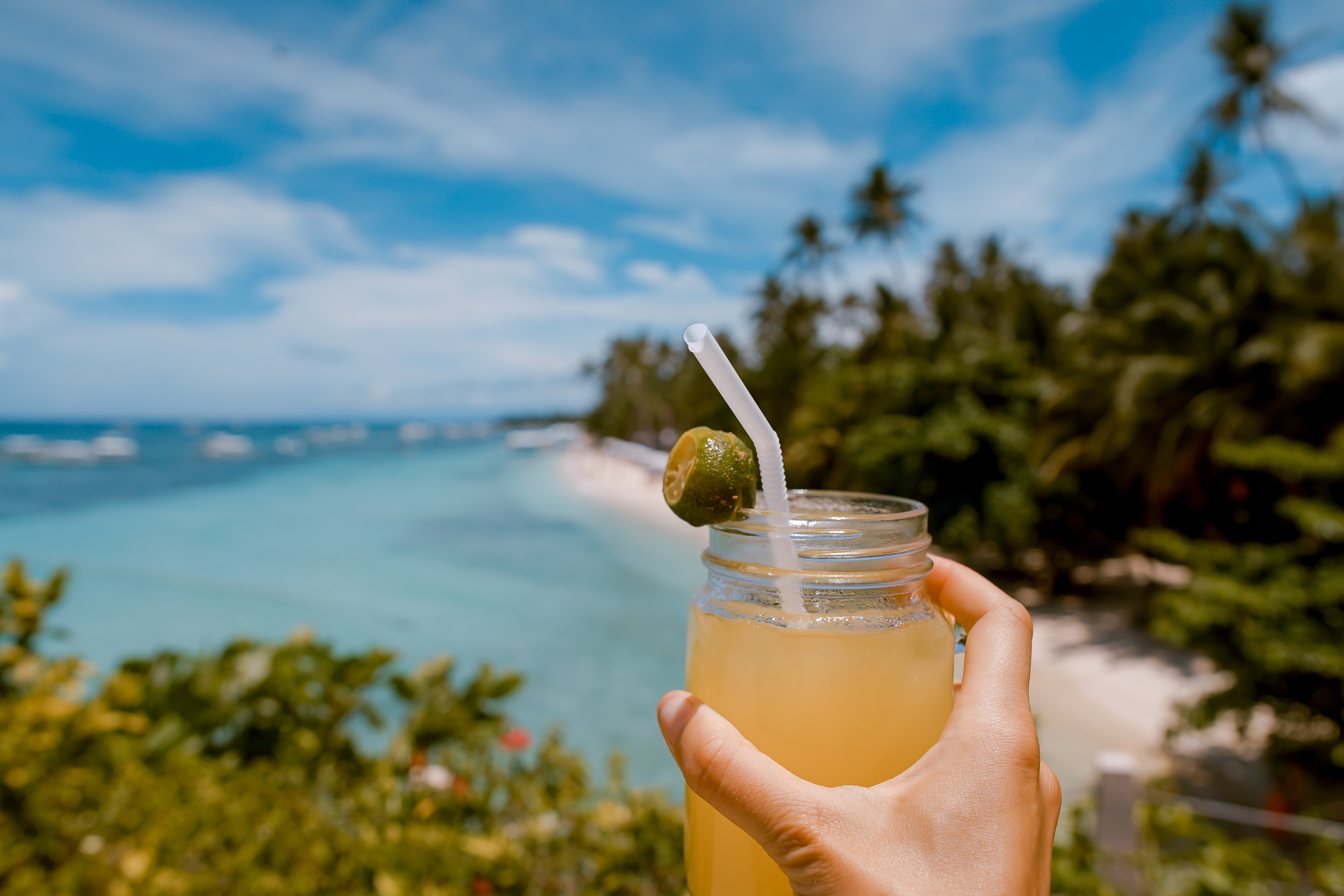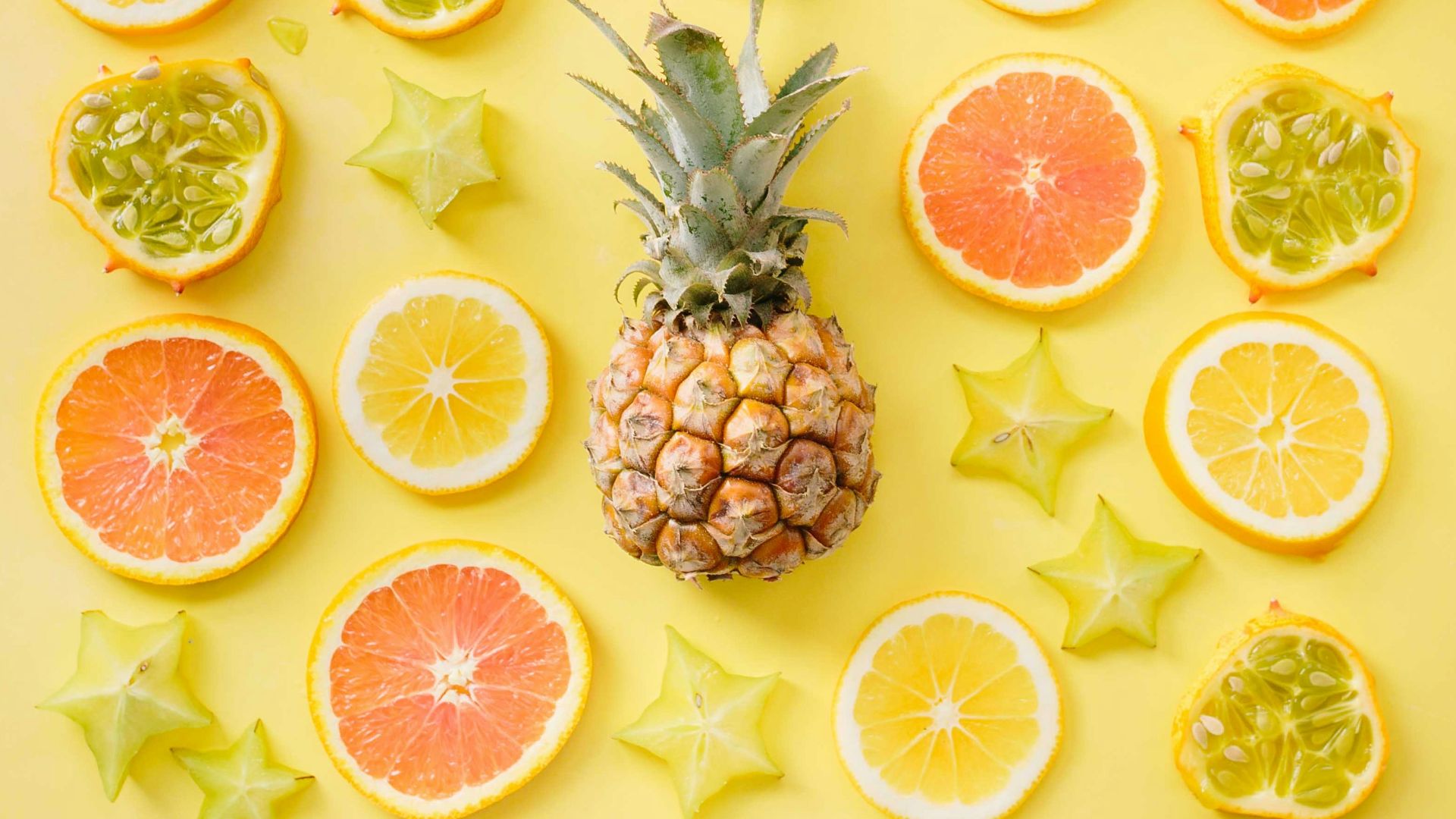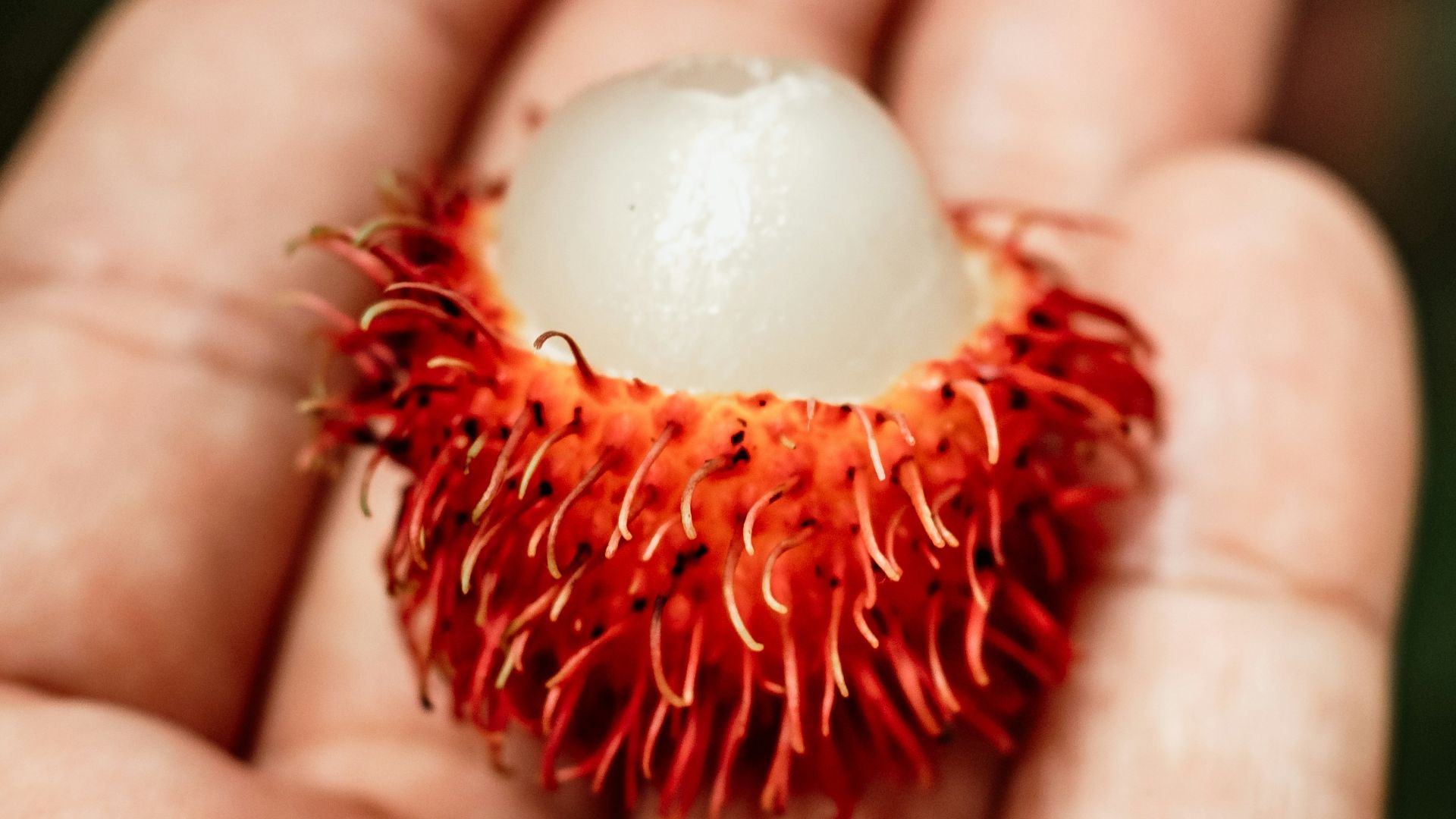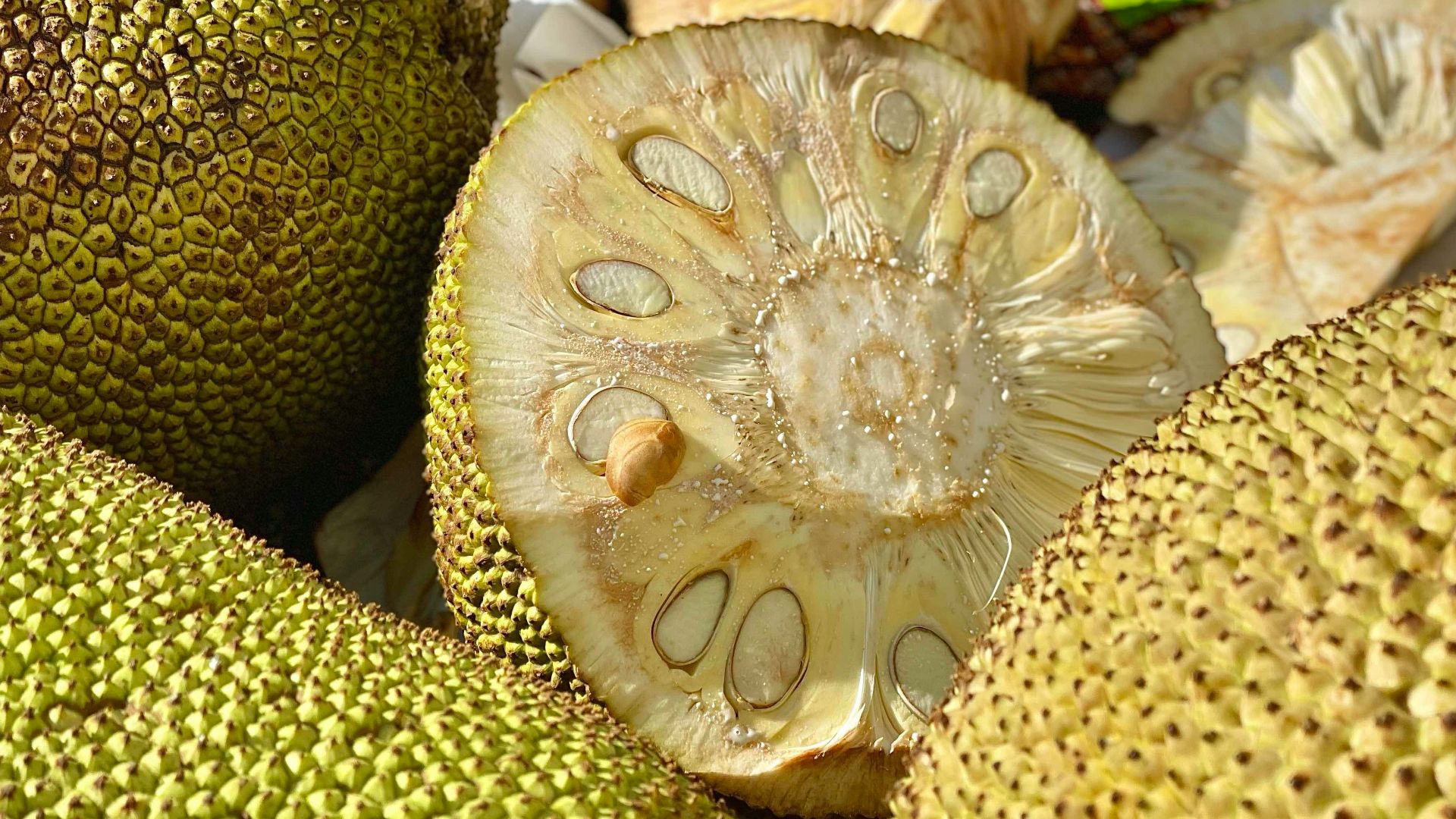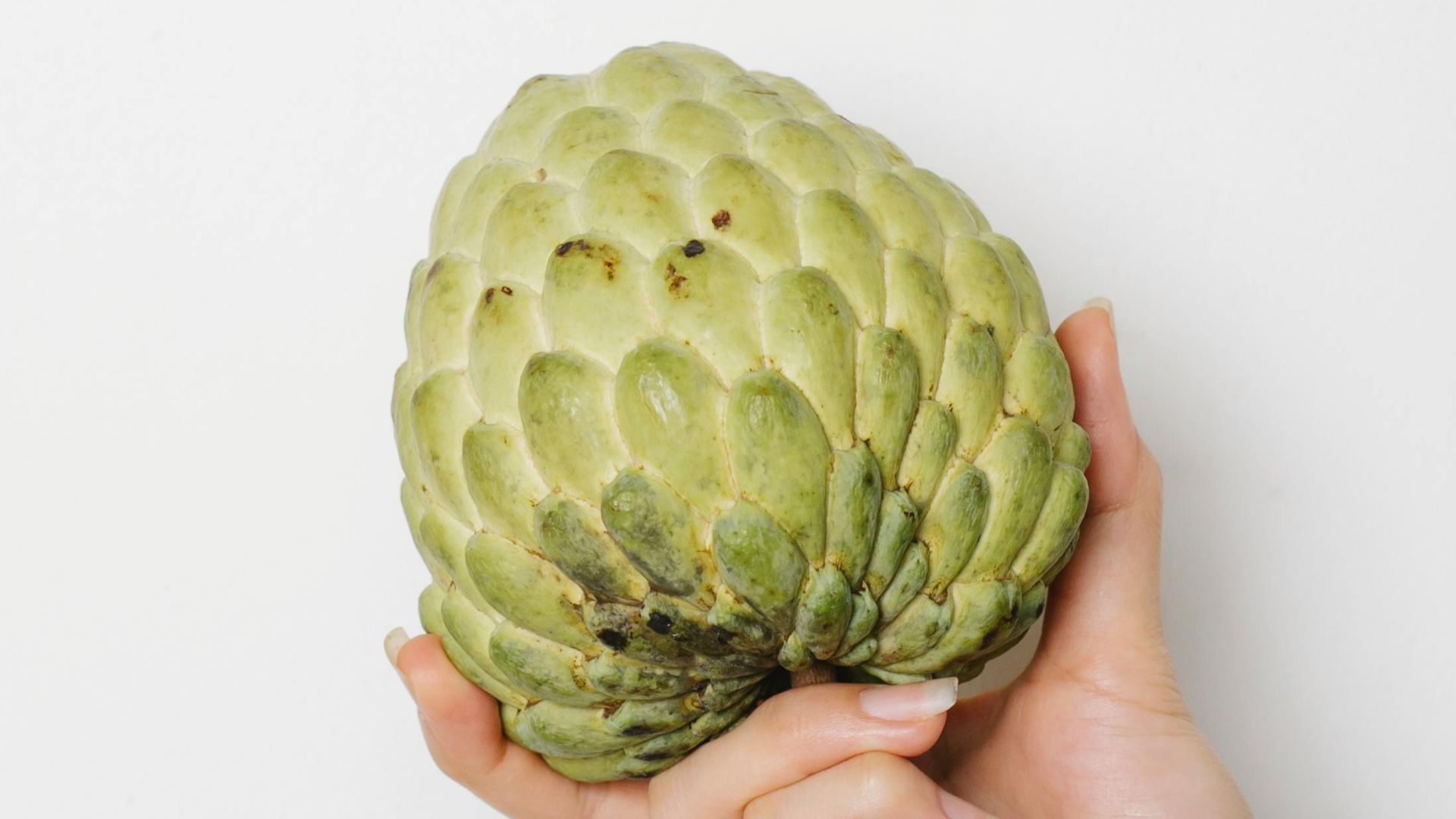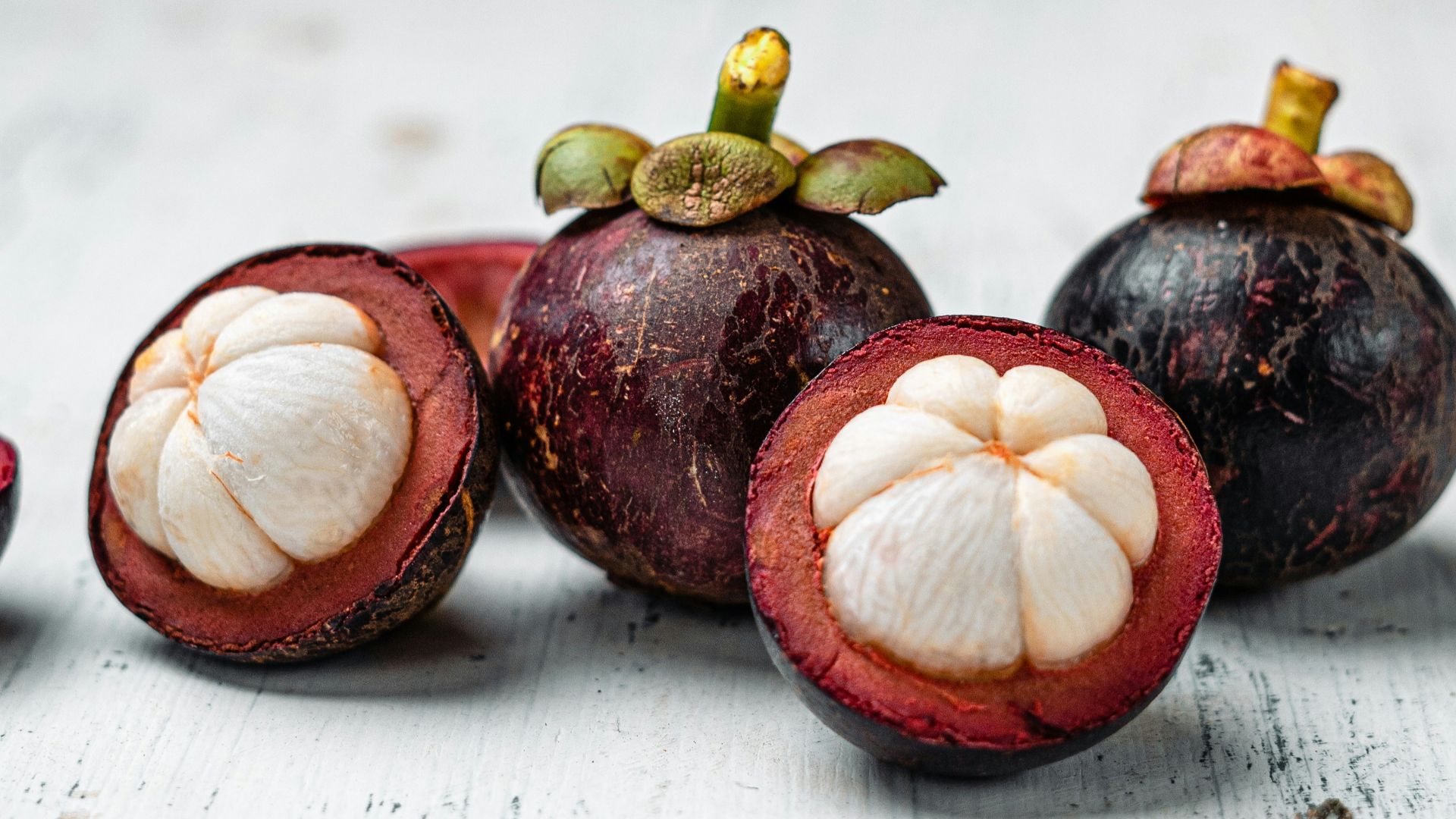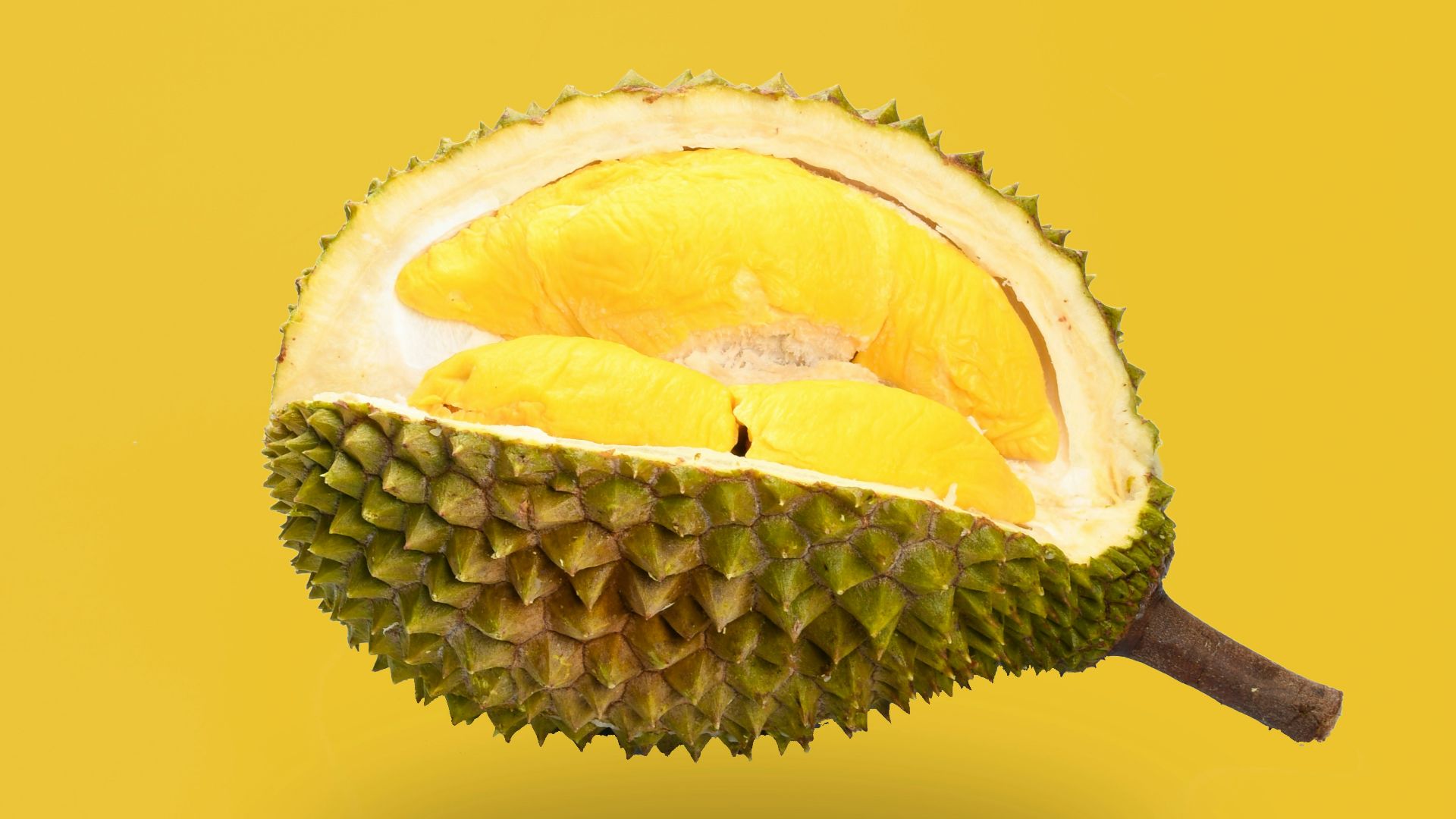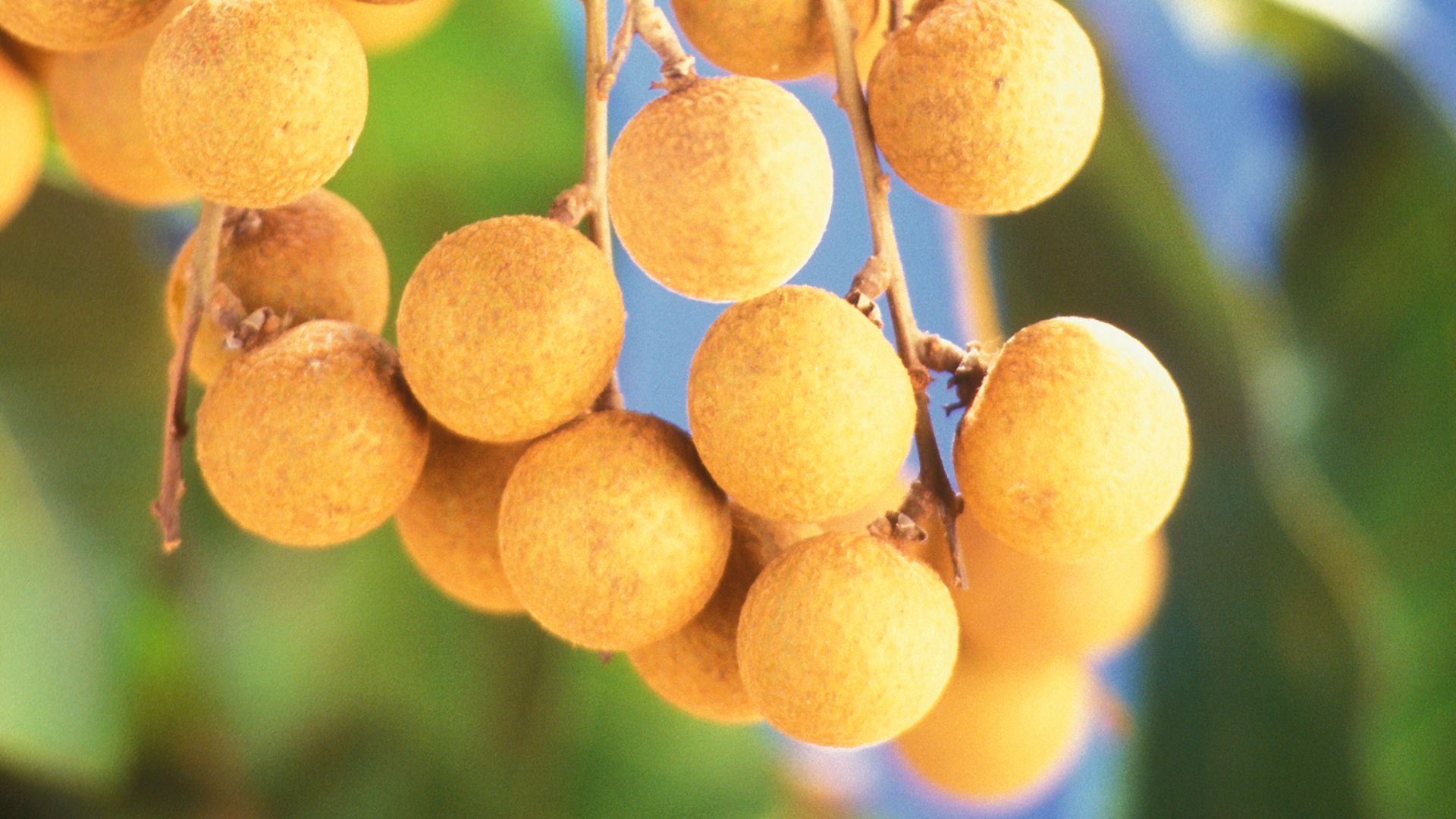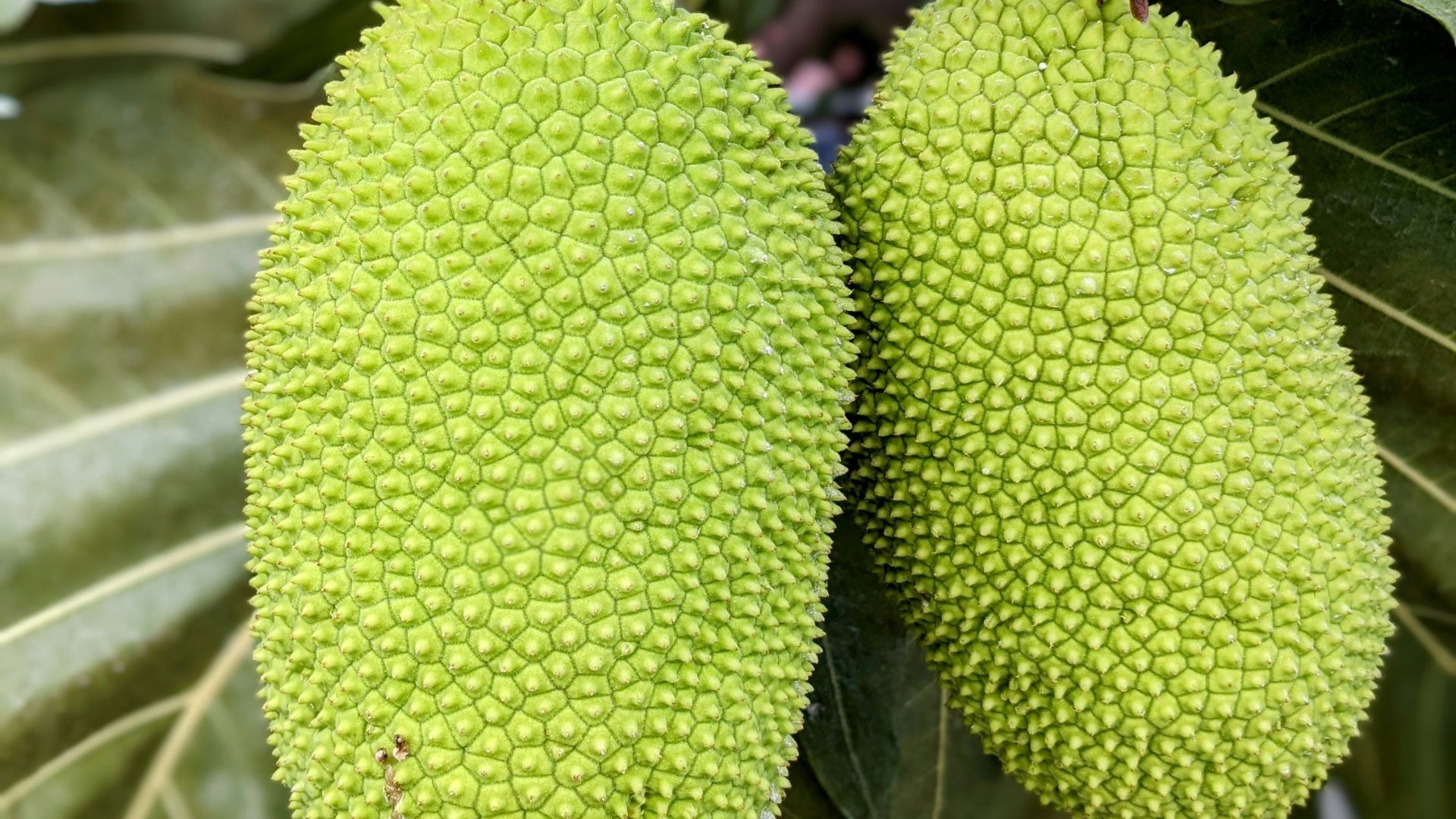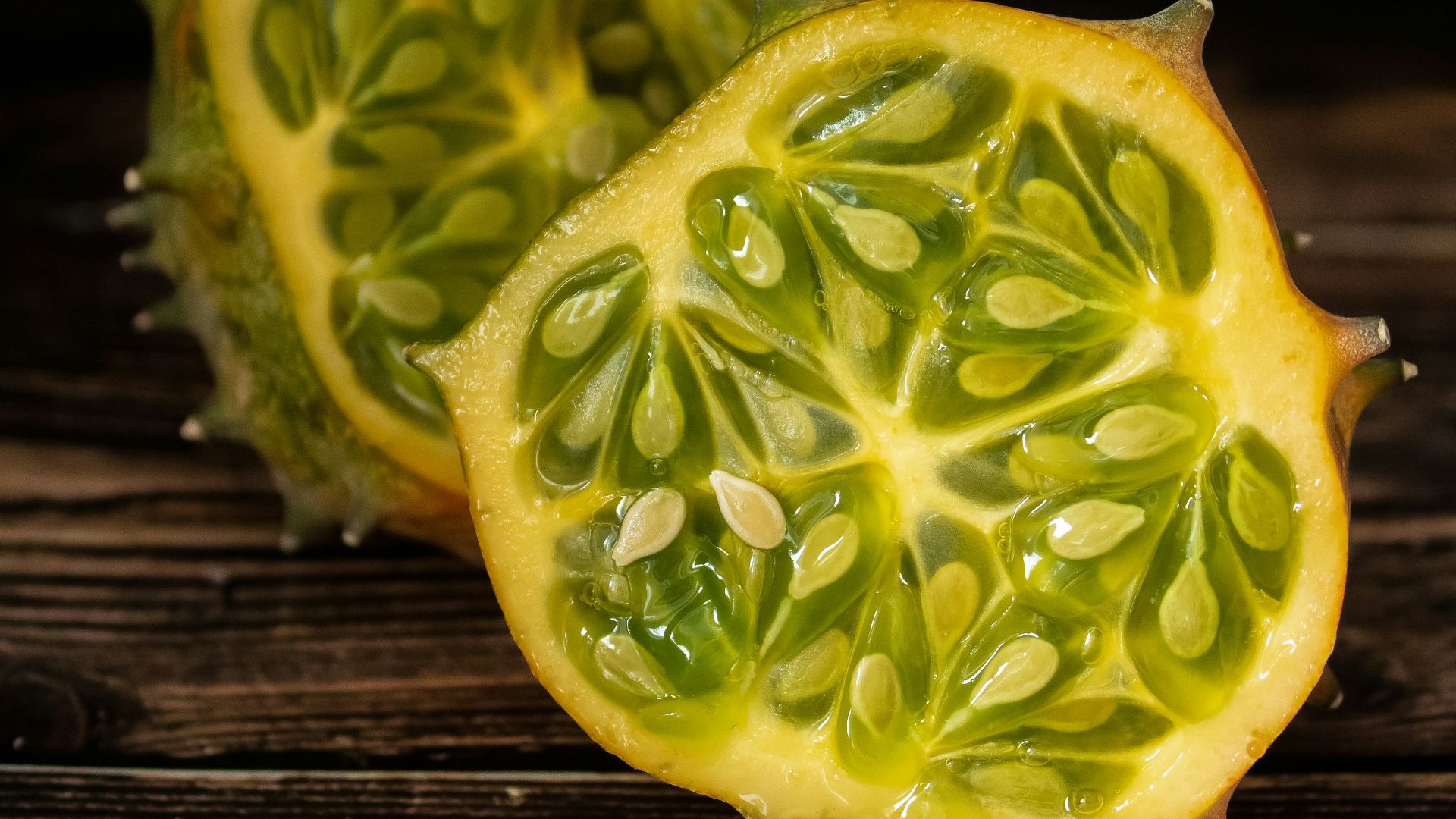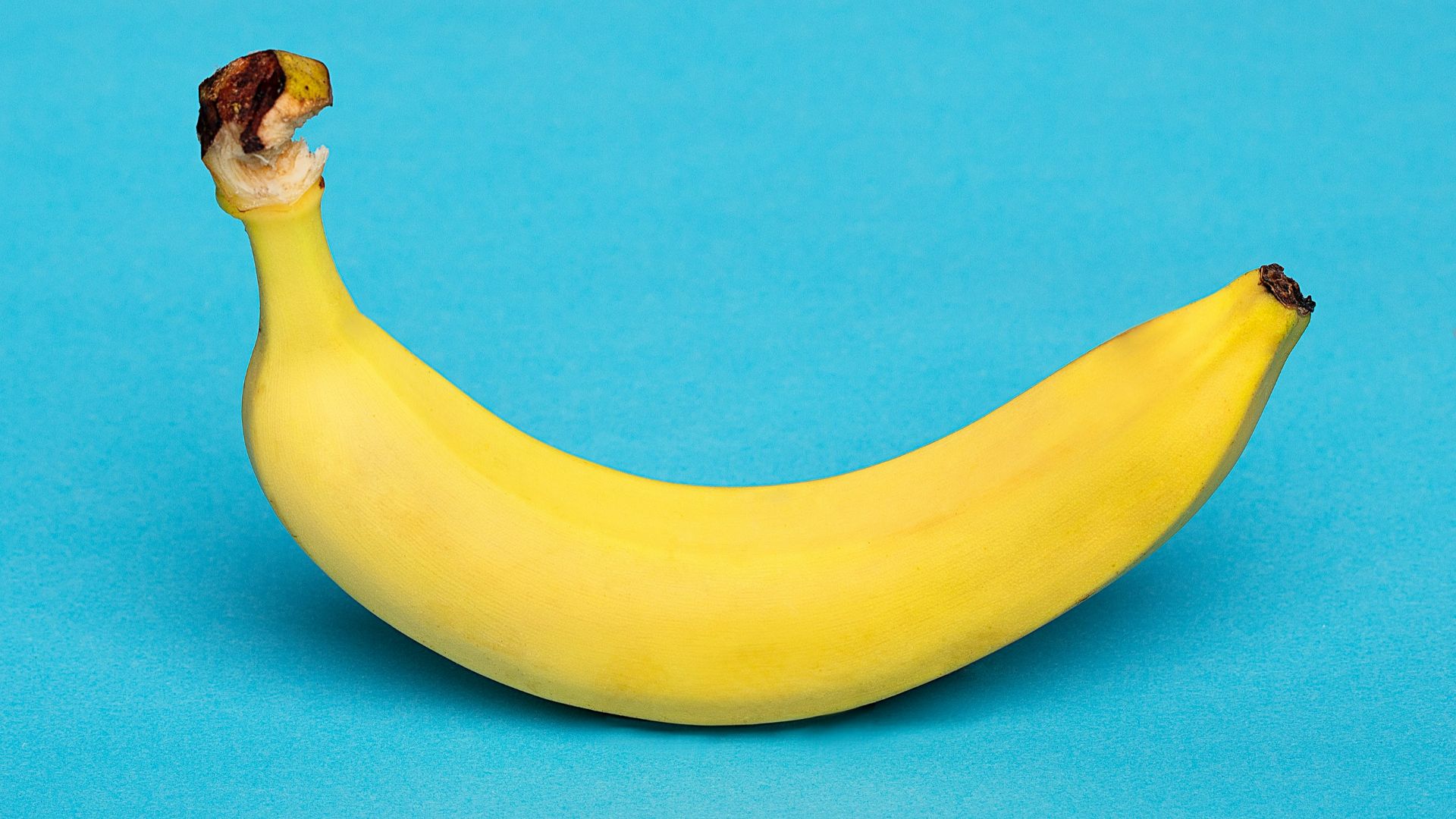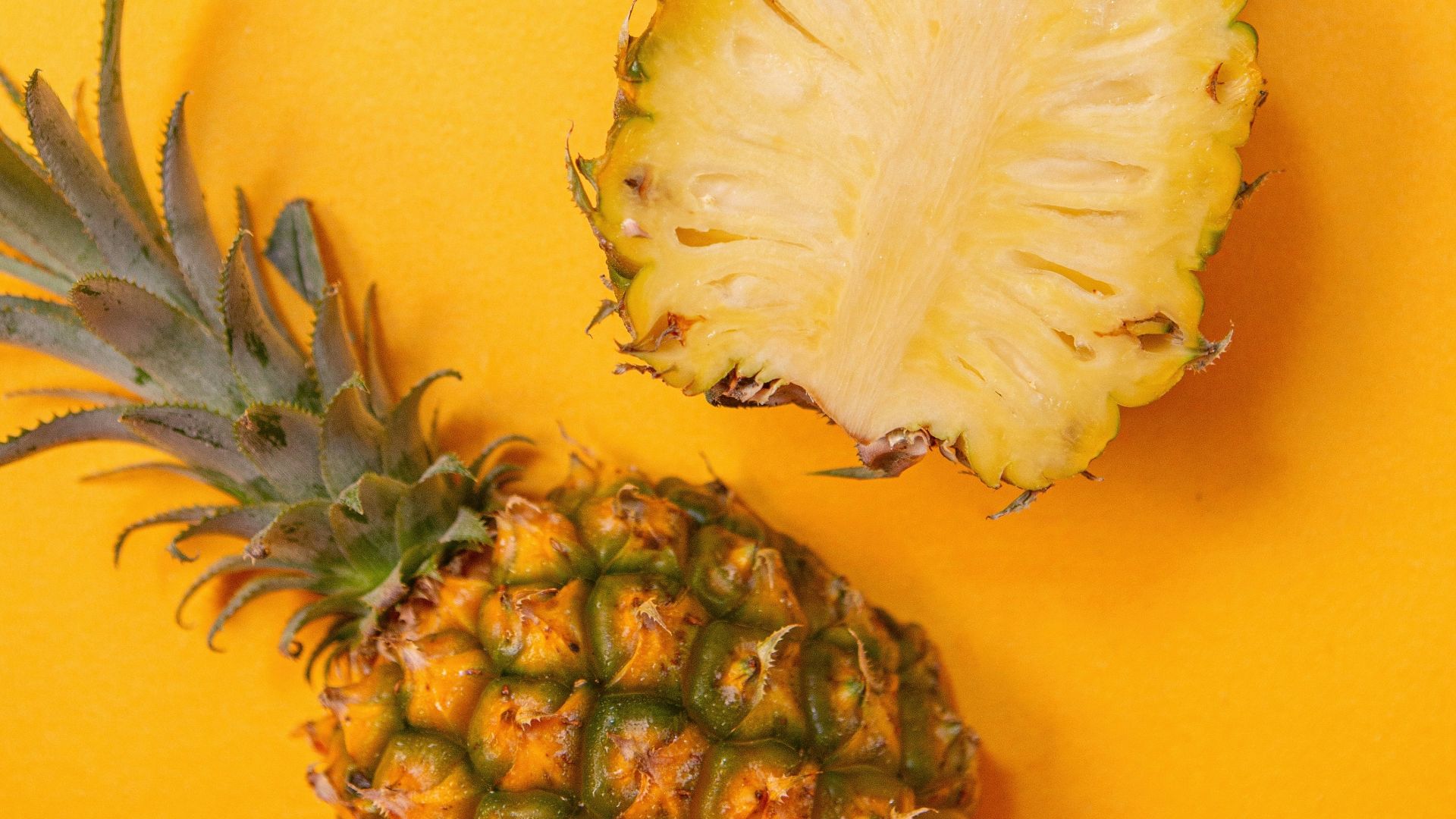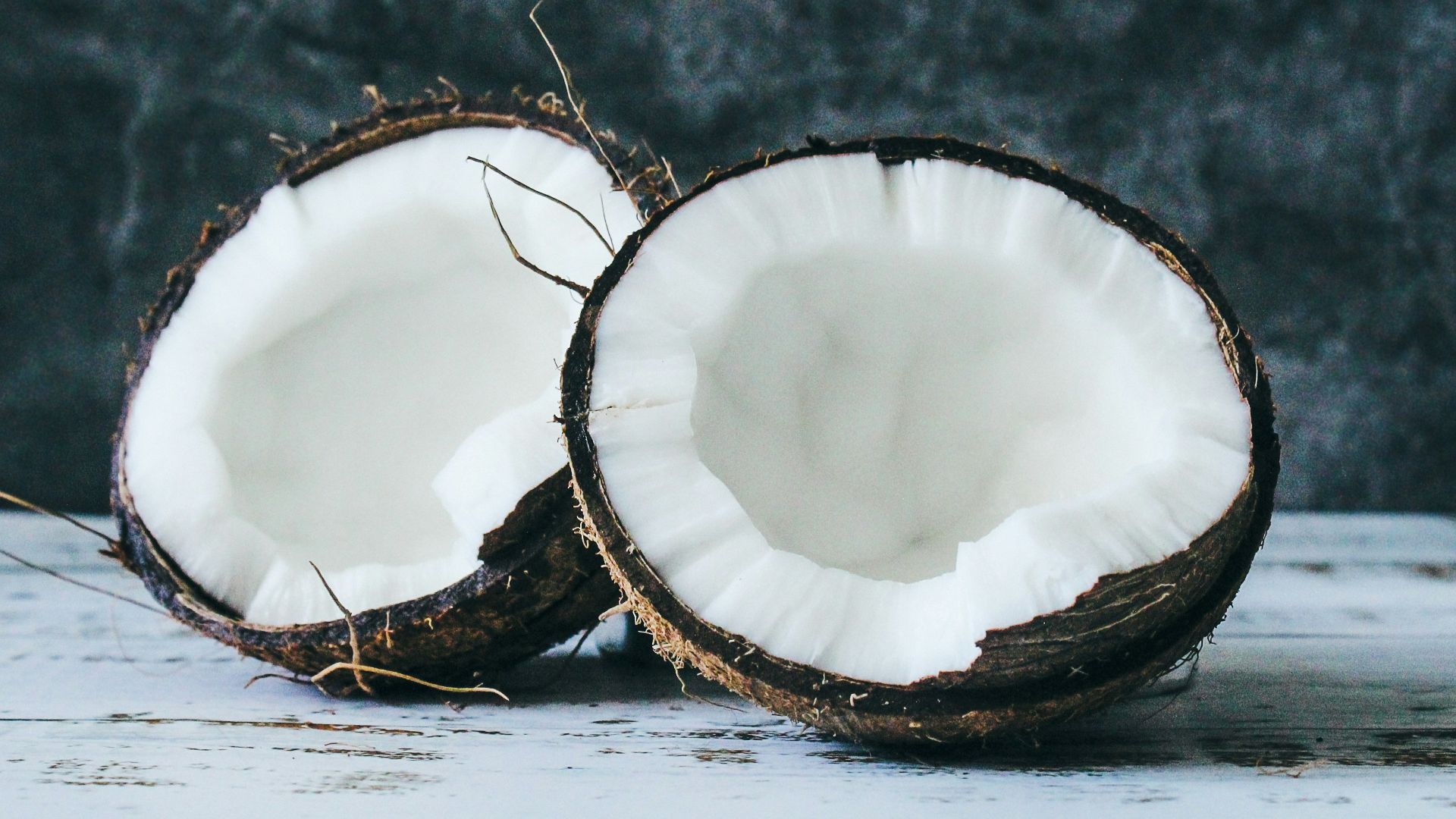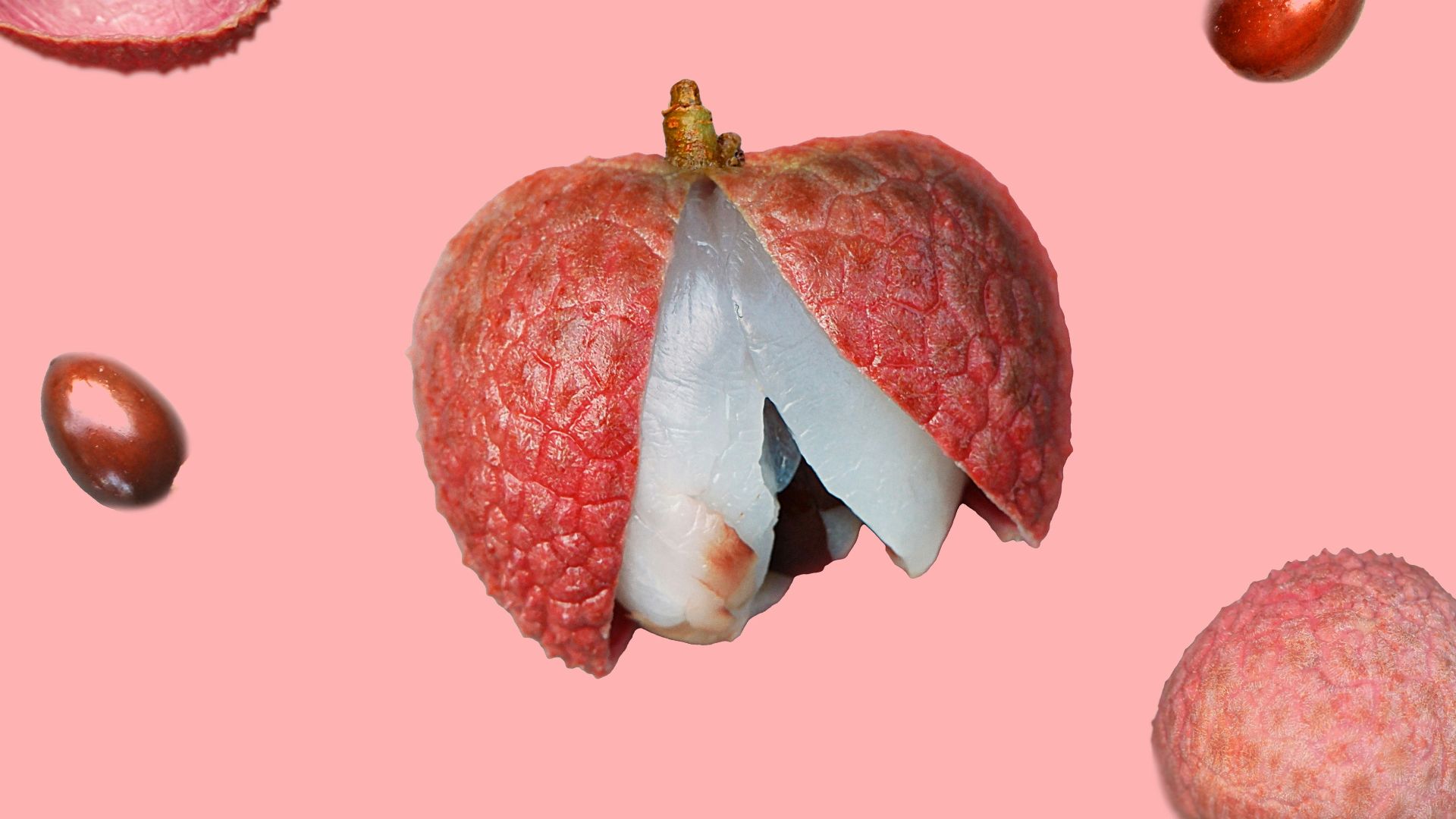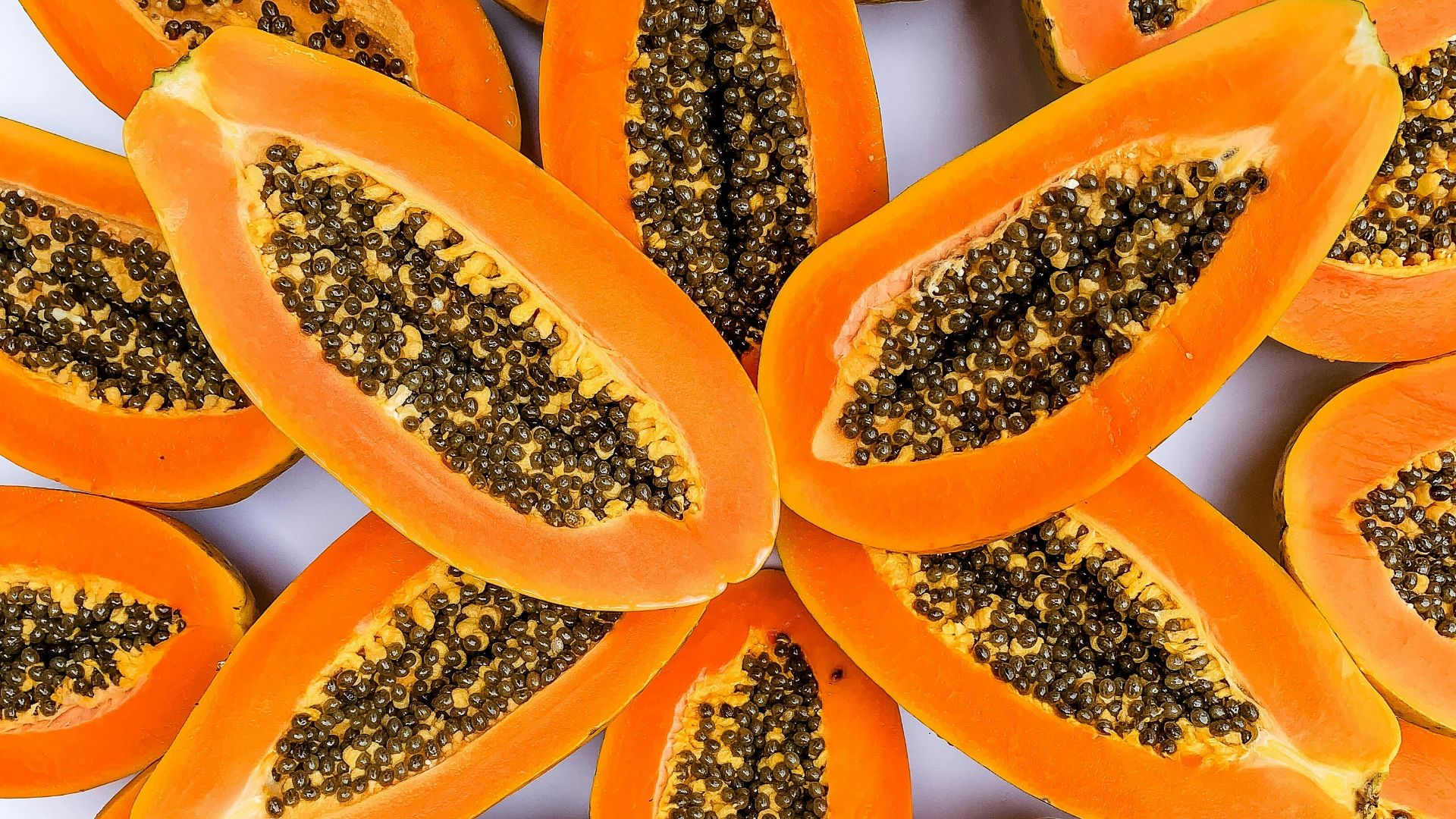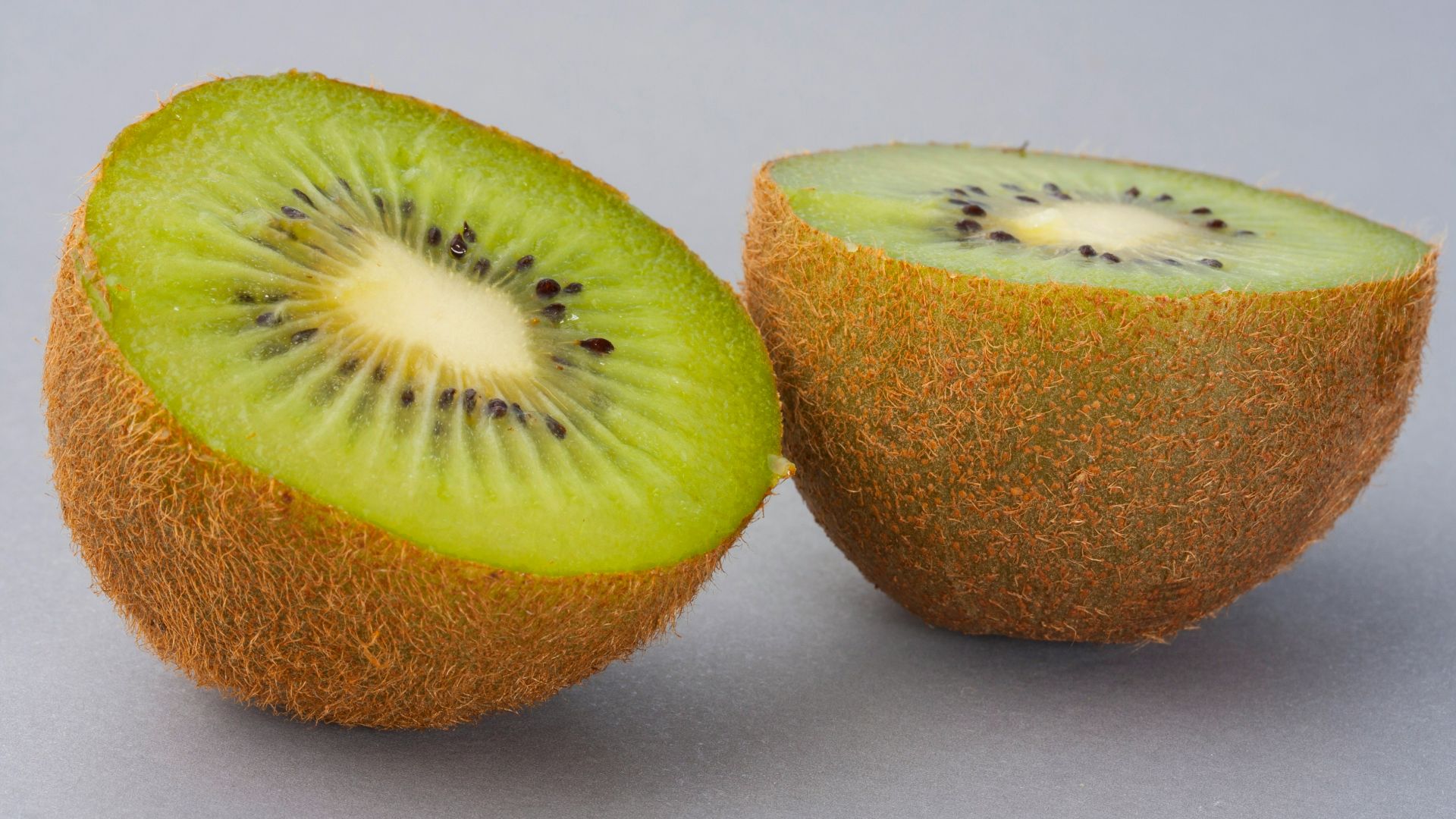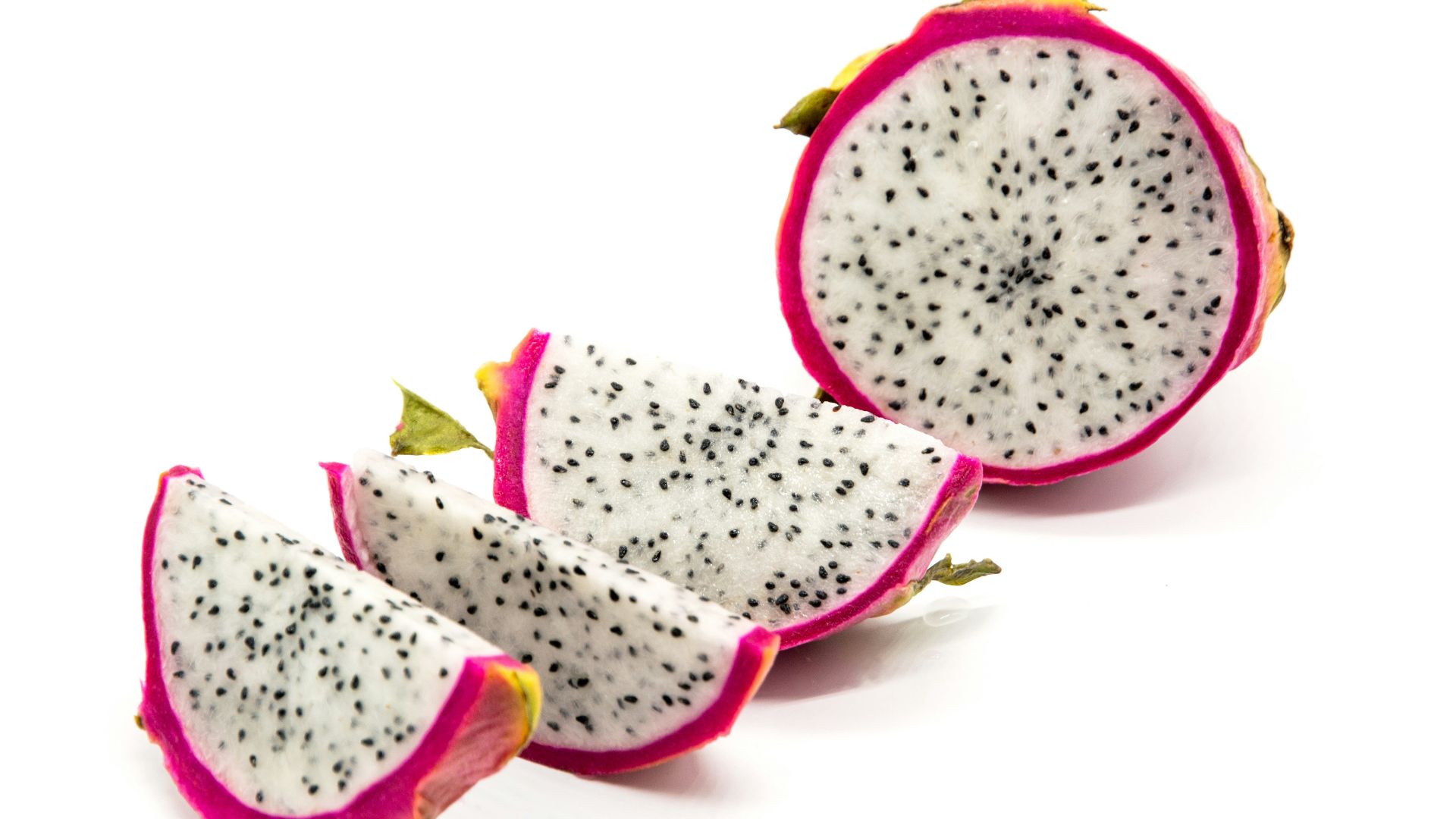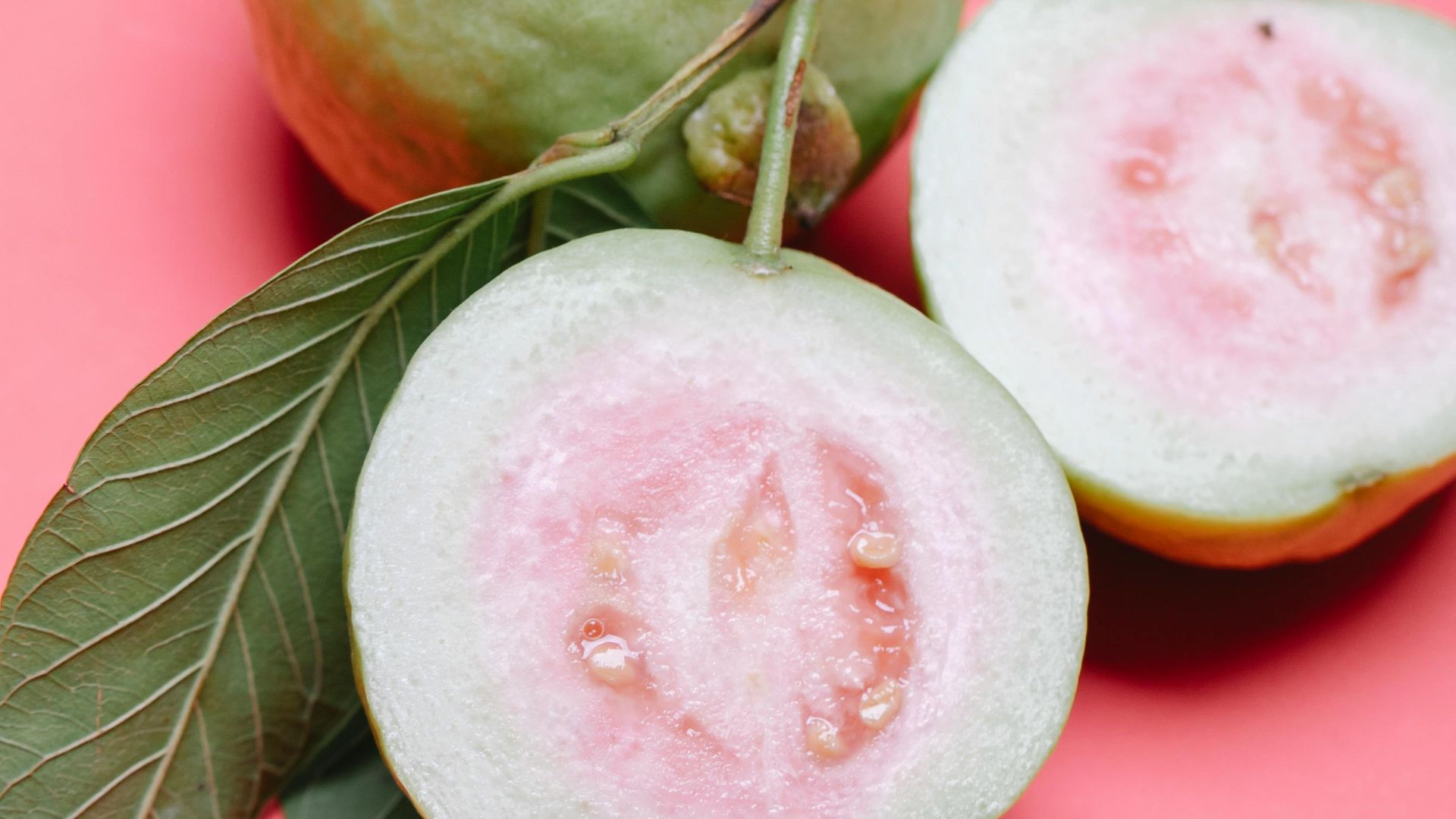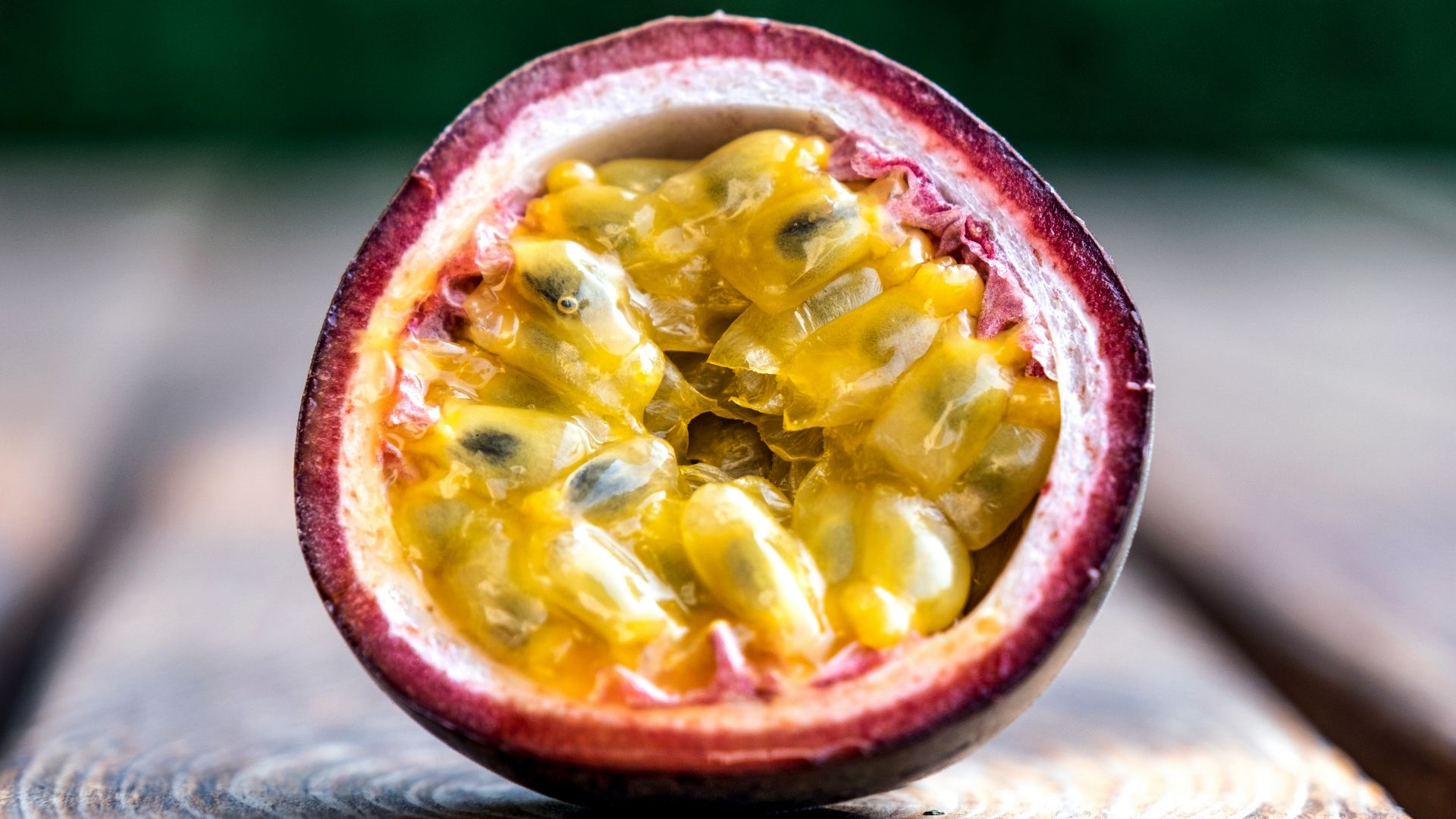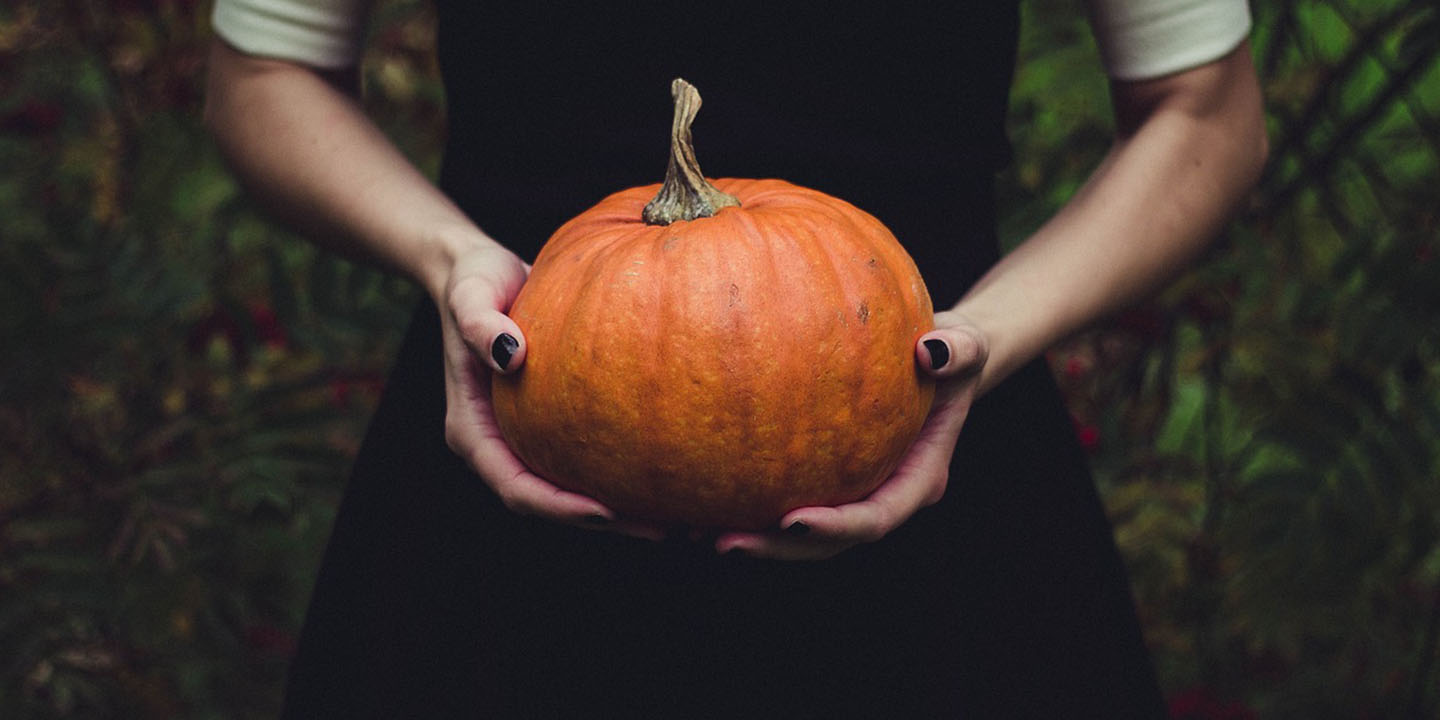A Tropical Buffet
We can't get enough of tropical fruits, especially as the weather turns cold and grey and many of our faves are out of season. No matter how many fruits you've tried, there are always more to explore. Let's explore some more obscure fruits before covering a few everyone knows.
1. Rambutan
Rambutan looks similar to another, more popular fruit on this list: lychee! Crack open this hairy fruit and you'll find delicate white flesh that's sweet yet tangy. Rambutan is high in copper, which supports energy production and brain function.
2. Jackfruit
Jackfruit's starchy and fibrous texture makes it a popular meat substitute as it shreds like pulled pork. Jackfruit tastes like a mixture of mango, pineapple, and banana, with a hint of bubblegum. Jackfruit is massive not only in terms of size, but in nutrients; its vitamin C content boosts antioxidants while managing blood sugar.
3. Cherimoya
Also called the custard apple, cherimoya is the most delicious fruit you've never heard of. The flesh of this heart-shaped fruit has a taste unlike any other, mixing pineapple and banana with hints of vanilla. Cherimoya is an excellent source of lutein, which supports eye health.
4. Mangosteen
If you see this bright purple fruit in stores, make sure to snatch it up, as it has a short shelf life! Mangosteen is a slow-growing fruit that yields snowy flesh with a juicy texture along with floral and brown sugar notes. Mangosteen is an excellent source of vitamin B2, which aids in energy production and metabolism.
5. Durian
Durian gets a bad rap for its pungent aroma and taste, with some places even banning the public consumption of it. While durian may be an acquired smell, it has a complex, custardy taste blending sweet and savory flavors. Durian is also one of the healthiest fruits on the planet, loaded with vitamins and minerals.
6. Soursop
Not to be confused with cherimoya—although the two are related—this sugar apple has a bark worse than its bite. Once you get past the spiky exterior, you're rewarded with creamy, custardy flesh that's excellent in ice cream. Soursop is a wonderful source of magnesium, which is especially important for heart health.
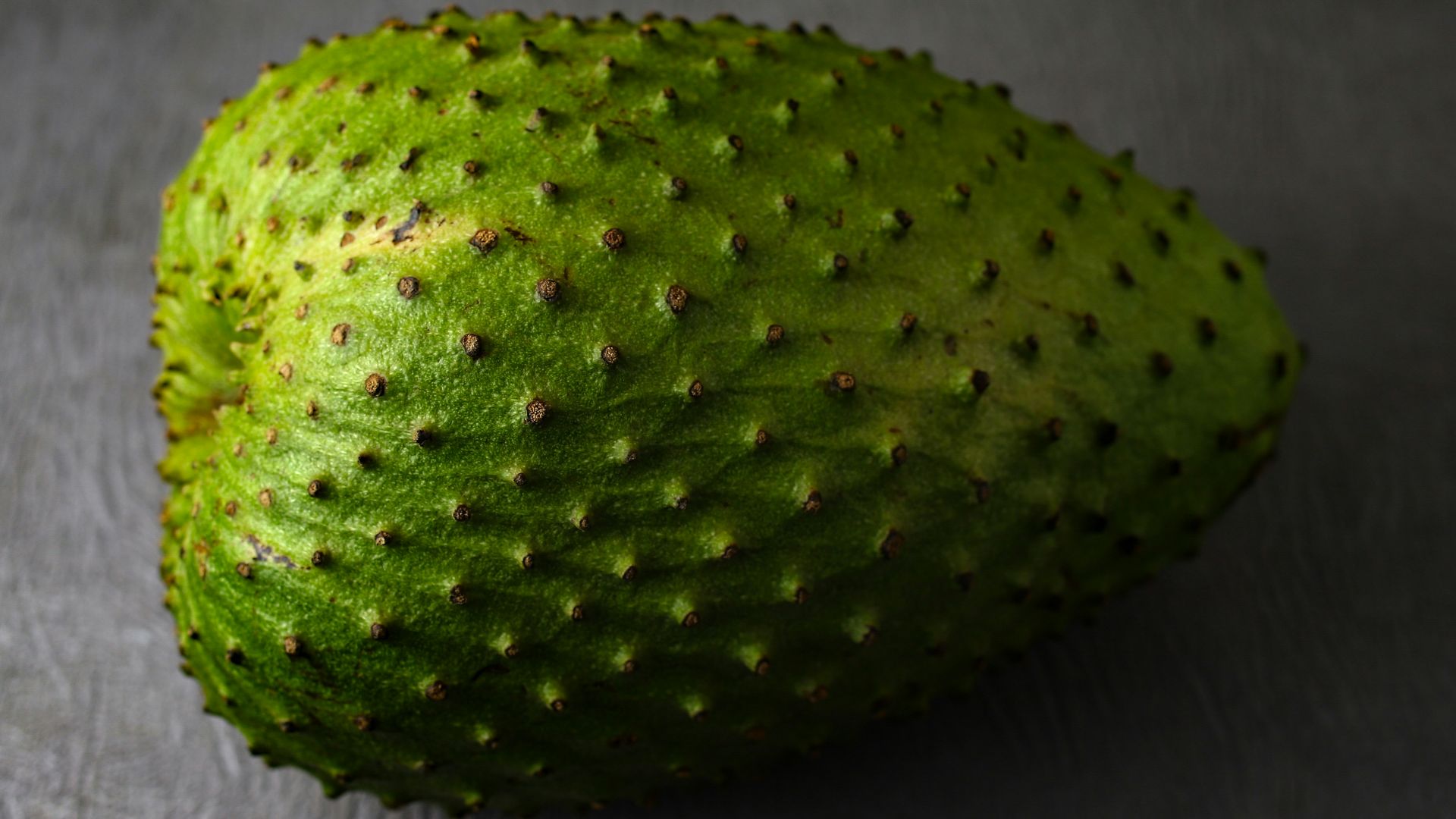 Oscar Ivan Esquivel Arteaga on Unsplash
Oscar Ivan Esquivel Arteaga on Unsplash
7. Longan
Also called "dragon's eye:, longan is a small fruit similar to a lychee. Longan has a fragrant and lightly musky flavor, similar to a nutty grape. Longan is rich in vitamin C and antooxidants to boost the immune system and prevent inflammation.
8. Breadfruit
A single breadfruit tree can feed a family for decades with the soft, starchy fruit it yields. Breadfruit is one of the rare tropical fruit that's better cooked, with a taste between a starchy sweet potato and a loaf of freshly-baked bread. Because of this, along with its low GI score, breadfruit can be used as a carbohydrate substitute.
9. Starfruit
We're surprised that starfruit isn't more popular, considering how beautiful it is. Starfruit has a waxy, slightly tangy taste that's the perfect garnish for drinks. Studies show that star fruit may reduce the risk of a fatty liver.
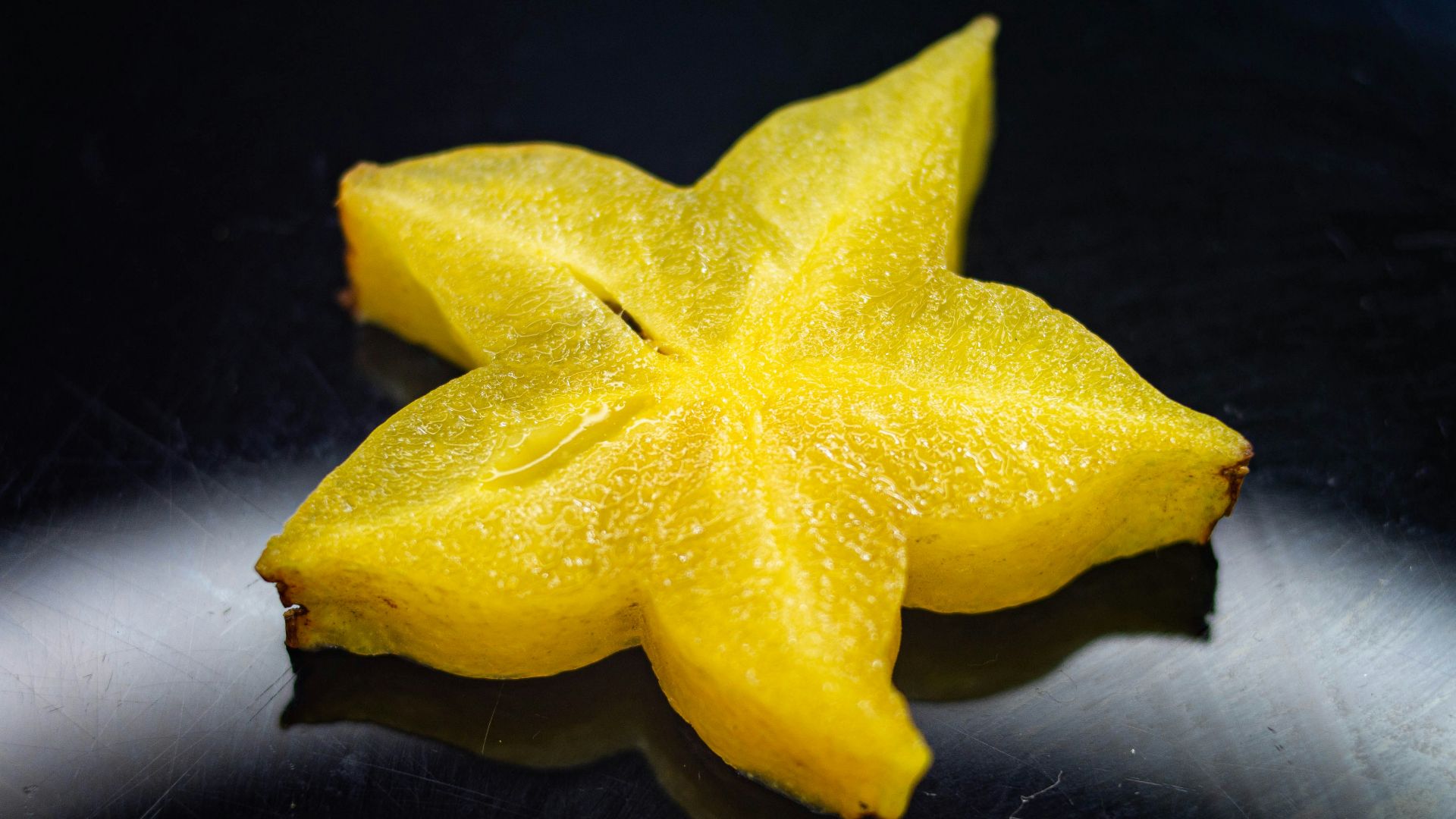 Lucas George Wendt on Unsplash
Lucas George Wendt on Unsplash
10. Kiwano
Kiwano, or, African horned melon, is one of the most unique fruits on this list in terms of appearance and taste. Kiwano has a gelatinous pulp that tastes similar to cucumber, banana, and kiwi. The vitamin C and zinc in kiwano are found to support bone health.
Now that we've explored some lesser-known tropical fruits, let's go over a few you'll find at every grocery store.
1. Banana
Bananas are one of the most popular tropical fruits in the world. Beloved for their creamy texture and sweet flavor, bananas pair well with just about anything! In addition to being a great source of vitamin C, bananas are also jam-packed with potassium.
2. Pineapple
Pineapples can be a pain to cut, but are worth it for the sweet and juicy flesh. Neither pine nor apple, pineapples are actually a cluster of berries fused together! Pineapples contain an enzyme called bromelain, which aids digestion and inflammation.
3. Coconut
Coconuts have a wide-ranging taste, going from sweet to nutty in a few bites. Coconuts grow from Hawaii to Madagascar and can be used for eating, drinking, art, and building! Coconuts are high in fiber, potassium and fatty acids.
4. Mango
Mouth-watering mango is considered the "king of fruits" in its native India. Mangoes have a soft and creamy texture and are loaded with antioxidants. With over 1000 different varieties, there are always new ones to explore; we recommend Gujarati kesar mangoes.
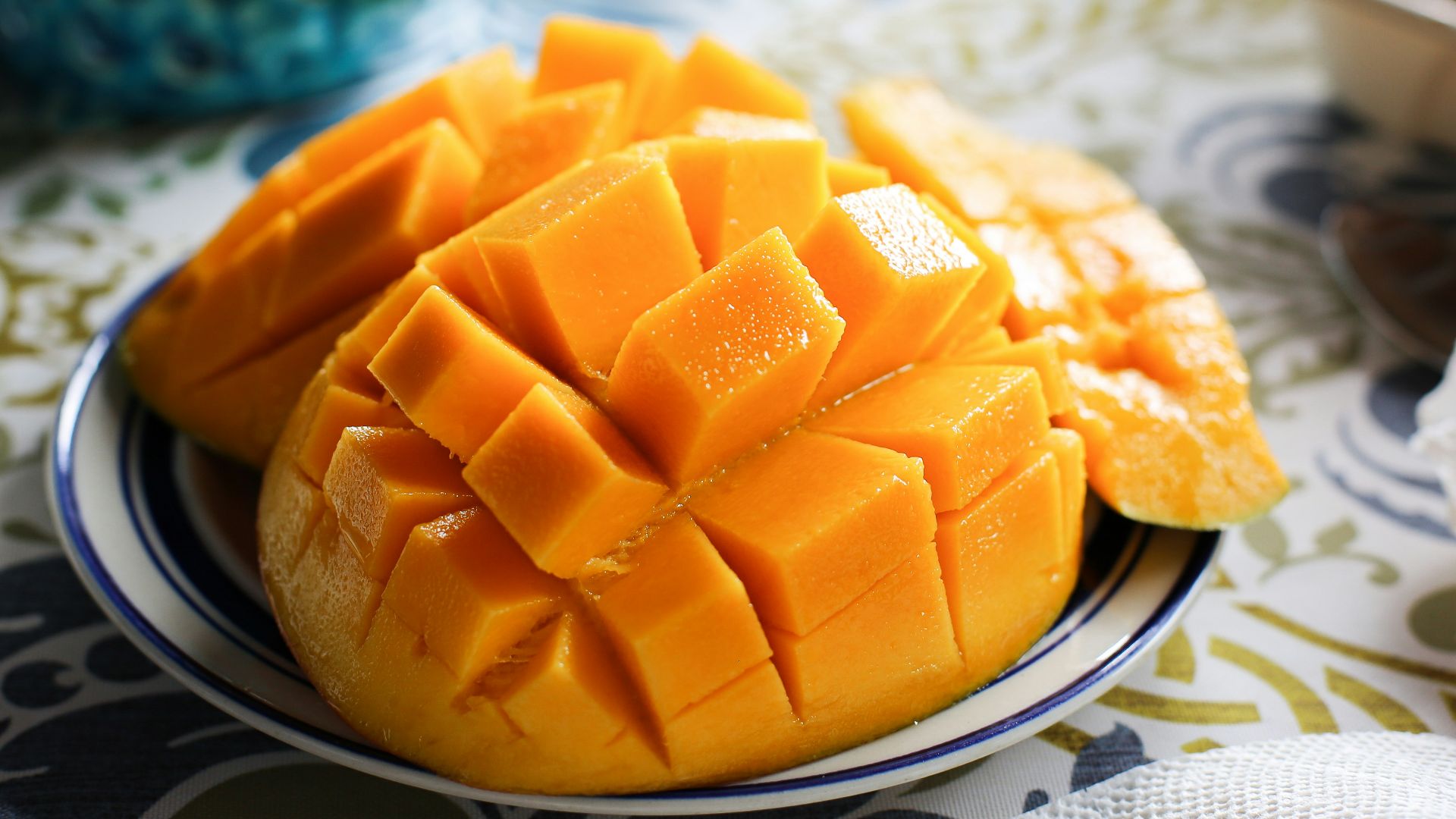 Desirae Hayes-Vitor on Unsplash
Desirae Hayes-Vitor on Unsplash
5. Lychee
Lychee (or litchi) is a small, translucent fruit that packs a big punch. Lychees have a delicate, floral taste that shines in drinks and syrups. Lychee is one of the oldest cultivated fruits in China, where it is prized. Lychee's anti-inflammatory properties can improve blood circulation and promote healthy skin.
6. Papaya
With its' smooth and buttery flesh and peppery edible seeds, papaya is a popular breakfast fruit. Papaya is enormously versatile as it can be served cooked or raw. Papaya is high in fiber to keep things regular, as well as vitamin A, which can aid in hair health.
7. Kiwi
Did you know that kiwi were originally called "Chinese gooseberries", but were renamed thanks to their resemblance to New Zealand's iconic bird? One kiwi has more vitamin C than an orange, so there's no reason not to include this fruit in your diet. The only question is whether to eat the skin or not.
8. Pitaya
Also known as dragon fruit—possibly because people were confusing pitaya and papaya—pitaya is a tropical fruit on the rise. Considered exotic a few decades ago, both red and white-fleshed varieties have experienced a meteoric rise in popularity. What pitaya lacks in bold flavor it makes up for in antioxidants and prebiotics.
9. Guava
This isn't a beauty contest, but, if it were, guava's pretty pink flesh would definitely land it on the podium. Guava tastes somewhere between a strawberry and a pear, a combination which shouldn't work, but does so beautifully. Guava is chock-full of fiber and folic acid.
10. Passion Fruit
Looks can be deceiving; the more wrinkled a passion fruit is, the better it tastes! Passion fruit's tart and tropical taste makes it a front-line pick for cocktails, juices, and desserts. Passion fruit is also great for diabetics, as it has a low glycemic index score.
KEEP ON READING
